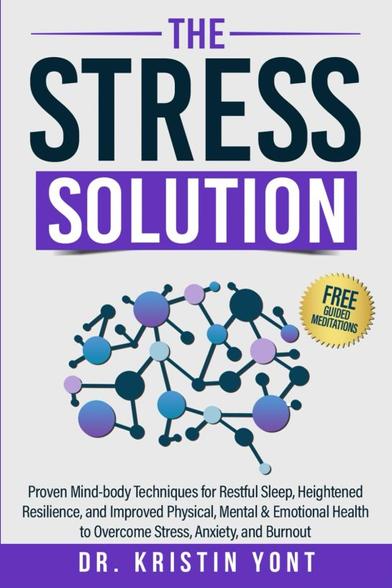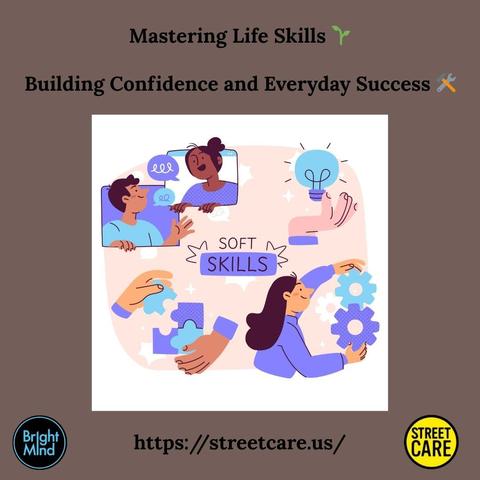Conversation with Jena Jake on Therapy, Coaching, and Help for Shy Guys
Scott Douglas Jacobsen
In-Sight Publishing, Fort Langley, British Columbia, Canada
Correspondence: Scott Douglas Jacobsen (Email: scott.jacobsen2025@gmail.com)
Received: January 8, 2025
Accepted: N/A
Published: January 22, 2025
Abstract
This interview provides an in-depth exploration of Jena Jake’s multifaceted expertise as a therapist, certified coach, author, and speaker, with a particular emphasis on self-empowerment, relationships, and communication. Conducted on January 8, 2025, Scott Douglas Jacobsen engages with Jena to uncover her specialized approach in assisting shy and neurodivergent individuals in navigating the complexities of dating and relationships. The conversation delves into Jena’s tailored programs, such as the “Quiet Power Method,” which focus on enhancing dating skills, boosting confidence, and overcoming self-limiting beliefs through personalized coaching and practical skill-building exercises. Additionally, Jena discusses the negative impact of social media on self-esteem and relationship perceptions, offering strategies to counteract these effects. The interview also highlights Jena’s “Soul Streaker Podcast,” which explores spirituality and personal growth, reflecting her holistic approach to self-love and transformation. As a parent of an autistic child, Jena shares valuable insights into the strengths and lessons learned from her parenting journey, emphasizing resilience, acceptance, and personal growth. The dialogue underscores the importance of personalized coaching, the integration of spiritual principles in therapy, and the provision of diverse resources to support individuals in their pursuit of meaningful and fulfilling relationships.
Keywords: Autism Parenting, Communication Skills, Confidence Building, Dating Coaching, Neurodivergent Individuals, Personalized Coaching, Quiet Power Method, Relationships, Self-Empowerment, Self-Love, Shyness, Social Anxiety, Soul Streaker Podcast, Spiritual Growth
Introduction
In this comprehensive interview conducted on January 8, 2025, Scott Douglas Jacobsen engages in a meaningful conversation with Jena Jake, a distinguished therapist, certified coach, author, and speaker renowned for her expertise in self-empowerment, relationships, and communication. Jena specializes in assisting shy and neurodivergent individuals, guiding them through the challenges of dating and building meaningful relationships. She offers tailored programs like the “Quiet Power Method,” which focuses on boosting confidence and overcoming self-limiting beliefs through practical exercises such as scriptwriting and role-playing. Jena also addresses the negative impacts of social media on self-esteem and relationships, providing strategies to foster authentic self-presentation and self-acceptance. Additionally, she hosts the “Soul Streaker Podcast,” which explores spirituality and personal growth, reflecting her holistic approach to therapy and coaching. As a parent of an autistic child, Jena shares insights into the personal growth and resilience gained from her parenting journey, emphasizing acceptance and compassion.
The interview further highlights Jena’s diverse offerings, including personalized coaching packages, online courses, and published works like “Your Daily Growth Partner” journal and “The Purpose” children’s book. Her comprehensive approach combines personalized coaching, spiritual integration, and practical strategies to empower individuals in achieving fulfilling relationships and personal growth.
Main Text (Interview)
Interviewer: Scott Douglas Jacobsen
Interviewee: Jena Jake
Section 1: Introduction and Client Engagement
Scott Douglas Jacobsen: Today, we are here with Jake. Jena is a therapist, certified coach, author, and speaker specializing in self-empowerment, relationships, and communication. You typically focus on assisting individuals who might be neurodivergent or shy regarding relationships or dating. How do you engage people who are neurodivergent or shy in a therapeutic setting? What is the common list of issues for which they seek help?
Jena Jake: They usually seek help with relationships and dating. They want assistance with their dating profiles, advice on how to meet potential partners, ways to boost their confidence, and guidance on navigating relationships. Even in a relationship, they often make choices that do not serve the relationship and create more challenges. They want to know how to address and rectify these issues.
Section 2: Therapeutic Approach and Session Structure
Jacobsen: How long do you typically work with shy people? Do you set a goal at the beginning of the therapeutic sessions and then work toward achieving that goal? What is the usual range of time people spend working with you?
Jake: First of all, I want to say I’m so excited to be here. Thank you for having me. It depends. Sometimes, it’s three sessions. Other times, they sign on for additional sessions or commit to a specific program lasting a month or two, depending on their needs. I tailor my approach to each client. My website’s options are now shorter because I am working on developing a group class, but I am happy to work with someone long-term if needed. On average, most people do about six to ten sessions.
Jacobsen: What is the development process like? When clients come to you, where do they start, and what progress do they make when they finish? What skills do they develop and integrate into their lives?
Jake: I had a client recently whose homework was to practice improving his social interactions. He felt like he had no “dating game” at all. I suggested he start by practicing low-pressure conversations—talking to a barista, for example, or someone at the grocery store. He did, and he said it felt like a weight was lifted off his shoulders. He had convinced himself that nobody wanted to talk to him and that he was bothering people. Through real-world experience, he quickly realized that these were just stories he had made up. It was not true at all; people were engaging with him. Using my teaching methods, clients tend to heal and grow relatively quickly. That’s my job, after all—to help them build confidence and move forward independently.
Section 3: Overcoming Social Anxiety and Building Confidence
Jacobsen: Is the primary issue the negative stories they tell themselves, or are there deeper, underlying physiological issues like deeply rooted anxiety?
Jake: Some clients do have deeply rooted social anxiety, and those cases require more care and time compared to someone who is simply shy and not dealing with significant anxiety. It depends on the individual. The average client I work with tends to have some social anxiety, but it’s usually more on the timid side. Often, they have internalized negative stories about themselves or others. It is incredibly freeing once they recognize that these stories are not true.
Jacobsen: Do people who have anxiety have comorbidities when they come to you as well? Or is it typically that when they have anxiety, that’s the only issue they are dealing with?
Jake: Sometimes they have other types of anxiety or depression, things like that. But that gets into my therapeutic background, and this is more coaching. So those kinds of issues, I tend to leave to their therapist. I try to focus more on the story they’re telling themselves, the actual implementation of their dating profile, getting them out there, discussing possibilities they might not be considering, and dissolving the unhelpful stories they’ve created. So, yes, they sometimes have those issues, but I feel those things are better suited for someone specifically trained in that area. Not that I’m not trained to deal with them, but that’s not the focus of my work with these individuals.
Section 4: Practical Coaching Techniques and the Quiet Power Method
Jacobsen: When coaching people, how do you convey some of these lessons in the Shy Guy Whisperer podcast?
Jake: In the podcast, I discuss topics like “Women in the Wild.” I give practical tips on where to meet women and provide opening lines. It’s a lot of role-playing and practical scriptwriting. It’s not just a to-do list; it’s a “to-done” list. When we work together, I’m not leaving you hanging—I sit, write scripts, and role-play with you. This prepares you to go out and feel comfortable because your brain is already familiar with it. We’ve practiced it extensively together—sometimes even at nauseam—so you know exactly what to do.
These are the things I talk about on the podcast. Still, I focus on implementing these lessons together when working one-on-one with someone. Initially, there’s a bit of hand-holding, but very quickly, clients develop amazing confidence. The secret is that many qualities shy guys have are ones women love. Women appreciate someone who is attentive, great with details, caring, and a good listener.
It’s often these false ideas about romance, masculinity, or what women want—fueled by movies or media—that hold them back. Once they see, “Oh, wow, I have unique and attractive qualities,” they get excited. They realize they don’t need to appeal to five women; they need to find one who appreciates them.
Section 5: Impact of Social Media on Self-Esteem
Jacobsen: Do you think social media use makes shyness on an individual level worse or better?
Jake: Probably worse. People go on social media, and it’s all an illusion. Everyone puts their best selves forward on social media. Any insecurity someone has gets amplified because their reticular activating system will focus on what they lack. They might see “Johnny” with a girl and think, “That’ll never be me.” They create stories about how great Johnny is and all the things Johnny has that they don’t.
The problem with social media is that it sets people up to fail. It reinforces unhelpful comparisons and can make individuals feel worse about themselves.
Jacobsen: And with the Quiet Power Method course, which is offered online and runs for four weeks, how do you teach mastering relationships, approaching women, and understanding what women want? You touched on that a little earlier, but in more specific terms, what traits are women looking for? How do you approach these topics and help men master these skills to build attractiveness and strong relationships?
Jake: Right. Everyone has their best self, the person they truly are. When you start focusing on the idea that 80% of you are already amazing and 20% need work, the goal becomes emphasizing the 80% without downplaying the 20%. The person you’re looking for also has their own 80/20 dynamic.
When you find your best self, visualize it, and keep that image in front of you, you realize that’s truly who you are. You’re an amazing being, and someone out there is looking for you—exactly you. Everyone else is already taken, so you might as well embrace yourself.
Once I can help someone build their confidence, we create a “confidence list.” Within the course, they know exactly what they’re good at, their gifts, how they’ve served or helped others, and how to shine their light brightly. They begin to see how unique they are and how the attributes I mentioned earlier—like attentiveness, kindness, and thoughtfulness—are deeply appreciated by women.
Then, we practice and write scripts around these ideas. The process comes alive and takes on a life of its own. It’s amazing to witness their transformation. They move from being stuck in a negative story about themselves to realizing they can let that go and embrace a new, positive reality.
Jacobsen: When you’re building these new scripts, how do you structure them?
Jake: That depends on the person and what feels authentic to them. For example, I had a session with a client last night, during which we worked on his dating profile. He liked what we wrote, but it didn’t feel like him. So I told him, “Let’s take another crack at it, and we’ll refine it next week.”
For conversations, I suggest using open-ended questions with a barista, such as, “Who’s your favourite customer? Why are they your favourite customer? What’s the most popular drink here?” These kinds of questions invite others to talk and open up.
Once clients see where I’m going with this, they start coming up with their questions and things they want to share. Initially, they might not have the courage to say these things. Still, with practice, they realize that people are genuinely interested in them. They start thinking, “I’m an interesting person!”
From there, I guide them. I might say, “That’s great!” or “Women don’t usually want to hear too much about that.” But ultimately, the conversation has to feel natural to them. I’m just tweaking and refining what they’ve already created. It has to come from their authentic self—I can’t be Cyrano de Bergerac in the background.
Section 6: Soul Streaker Podcast and Spiritual Integration
Jacobsen: You’ve also developed the Soulstreaker Podcast, which has been around longer and focuses on spirituality and similar topics. What is that philosophy, and how does it feel more personally connected to you?
Jake: I love spirituality, and I believe we are all spirits having a human experience. I am also a mother of a child with autism, so lately, I have been integrating the spirituality of autism into my work. However, the Soulstreaker Podcast has primarily been a deeply personal spiritual project.
I’ve had many mediums and spiritual energy experts on the podcast, and it’s truly a labour of love. It’s for people interested in energy, the paranormal, or the idea that we are more than just physical beings. I focus on collective energy—the wave rather than the matter. It’s about exploring the energetic and spiritual aspects of life.
Jacobsen: Are there certain philosophical or spiritual traditions this podcast builds upon? For instance, does it stem from one particular branch of thought, or is it more syncretic and eclectic?
Jake: It’s more eclectic. Spirituality is just who I am. I can’t not be spiritual—it’s integral to my being. The podcast is an expression of the ideas and things I find fascinating. I hope others enjoy it as much as I do.
The themes often revolve around love, self-love, spiritual growth, self-improvement, and personal experiences viewed through a spiritual lens. It’s about sharing what resonates with me and offering insights to inspire others.
Jacobsen: When we talk about self-love, what do we mean by it?
Jake: Self-love involves loving the parts of yourself that feel unlovable. But it’s also about recognizing that you are love. If you are inherently love, self-love is naturally included in that understanding—it’s who you are. You can’t separate yourself from self-love because it’s intrinsic to your being.
It becomes even more profound when we start exploring what the “self” truly is. Are you your mind? Your body? Or is your ego’s perception of who you are an illusion? These aspects of self can change—your thoughts, personality, or even your entire reality can shift.
Transformation happens when you change your thoughts or personality, but there’s always a witness, a knower, observing these changes. That’s who we truly are—an unchanging, loving intelligence. As Joe Dispenza says, you’re “nobody, nowhere, no time.” You’re an energy that is formless but full of love and intelligence. In this sense, we are everything and nothing simultaneously.
Jacobsen: Do you bring these ideas into your coaching and therapy process?
Jake: Yes, I do. Even if I try not to, it naturally sneaks in because it’s a core part of who I am. It just oozes out of me.
Section 7: Parenting an Autistic Child and Personal Grow
Jacobsen: Do you have other projects that might evolve from your spirituality, therapy, or coaching work?
Jake: I’m developing a few ideas, but they’re still in the early stages. These projects will likely integrate spirituality and personal growth, building upon the work I’ve already done. I’m excited to see how they unfold.
I have a “Buffers” class about buffering yourself for a spiritual journey, specifically for ASD and autism moms. However, lately, I’ve focused heavily on the Shy Guy Whisperer work. That said, if there are moms with children with autism who want to explore the spiritual side of life and talk to me, they can find me on my website. I’m always happy to work with them.
My work revolves mostly around the packages I offer. I have an option called “90 Minutes of Power,” which includes a personality assessment. I’ve developed expertise in personality and communication from working with executives for many years. Other offerings include dating-related services, like helping with dating profiles, scriptwriting, confidence-building, and overall transformation—all of which I find fun and rewarding.
If you visit my website, you’ll find a variety of packages. I also have a journal I wrote called Your Daily Growth Partner, available on Amazon and a children’s book called The Purpose, which you can find on my website or as a Kindle version on Amazon. Additionally, I wrote an e-book for parents of children with autism focused on helping their children make friends. It includes 12 strategies that parents might not have thought of to help their child build friendships, which can be particularly challenging for parents of autistic children.
Jacobsen: What are some of the challenges you’ve encountered as a parent during that process, and how have you overcome them?
Jake: It’s been about learning that it’s not so much about me but about them and how I look at life. For example, if my daughter was being teased but didn’t see it that way and was happy, I learned to join her in her experience. If she wasn’t upset, why should I be? I realized there was no point in upsetting myself on her behalf if she wasn’t feeling upset.
This taught me to approach situations from a more spiritual perspective. It’s about shifting my focus and embracing her view of the world, which is often much more joyful.
Jacobsen: People often have deficits in some areas but tend to have compensatory strengths in others. What strengths have you noticed as a parent of a child on the spectrum?
Jake: The entire experience is character-building for the parent and child. Special needs parenting challenges all your insecurities, and you have to overcome those. It also teaches you to focus on helping your child grow and improve while realizing there’s no single way to live or be.
It fosters acceptance and tolerance—not just of your child, but of yourself and others. When you face your insecurities and deficits, the situation helps you find different ways of looking at things and teaches you to embrace a broader, more compassionate perspective. It’s a deeply rewarding journey that encourages growth on many levels.
Section 8: Final Thoughts and Resources
Jacobsen: Jena, any final thoughts or feelings based on the conversation today?
Jake: My final thought would be this: to anyone listening, I want you to know that you’re amazing. You’re not alone. I believe in you. Whatever you’re going through, consider it a training ground for greatness.
When you reach the end of your life, you’ll be glad you believed in yourself enough to push through, persevere, and celebrate who you truly are—because you are incredible. So thank you—thank you for listening. And if anyone wants to work with me, you can find me on my website at www.JenaJake.com.
Jacobsen: Jena, thank you for the opportunity to talk today. I appreciate it.
Jake: Thank you, Scott. And don’t forget to sign up for the course—it starts February 8th. It’s a great course, and for $350, it’s an incredible value.
Jacobsen: I appreciate it. Thank you.
Jake: Thank you so much, Scott. I loved being here, and I hope I get to come back again.
Jacobsen: Cheers.
Jake: Thanks!
Contact and Further Information:
- Website: www.JenaJake.com
- Courses: Upcoming “Quiet Power Method” course starting February 8th for $350
- Publications: Available on Amazon and her website
Discussion
The interview between Scott Douglas Jacobsen and Jena Jake offers a comprehensive exploration of Jena’s expertise in therapy, coaching, and personal development, particularly focusing on assisting shy and neurodivergent individuals in the realms of relationships and dating. Jena Jake’s multifaceted approach combines traditional therapeutic techniques with modern coaching strategies, emphasizing self-empowerment and confidence building as central themes. A significant theme is Jena’s “Quiet Power Method,” a tailored program designed to help clients improve their dating skills, boost confidence, and overcome self-limiting beliefs by addressing social anxiety and reframing negative self-stories through personalized coaching. Additionally, Jena discusses the impact of social media on self-esteem and relationship perceptions, articulating how curated online personas can exacerbate insecurities and hinder authentic self-presentation. She provides strategies to help clients mitigate these negative influences, promoting self-acceptance and highlighting inherent strengths. Furthermore, Jena delves into her “Soul Streaker Podcast,” a platform dedicated to exploring spirituality and personal growth, reflecting her holistic approach to therapy and coaching. By integrating spiritual principles, she offers clients a deeper understanding of self-love and transformation beyond societal and ego-driven narratives. As a parent of an autistic child, Jena brings a unique perspective to her practice, emphasizing resilience, acceptance, and personal growth. Her parenting experiences have informed her therapeutic methods, fostering a compassionate and inclusive environment for her clients. The interview also highlights Jena’s diverse range of offerings, including online courses, personalized coaching packages, and published works, demonstrating her commitment to providing accessible and comprehensive support systems for personal and relational growth.
Methods
The interview with Jena Jake was conducted on January 8, 2025, and subsequently compiled for analysis. A semi-structured interview format was employed to facilitate an in-depth and flexible conversation, allowing both the interviewer, Scott Douglas Jacobsen, and the interviewee, Jena Jake, to explore a wide range of topics related to therapy, coaching, and personal development. This approach enabled the discussion to flow naturally while ensuring that key areas of interest, such as Jena’s “Quiet Power Method,” the impact of social media on self-esteem, and her “Soul Streaker Podcast,” were thoroughly examined. The interview was conducted virtually via a secure video conferencing platform to ensure convenience and accessibility for both participants. With mutual consent, the session was recorded to capture the nuances of the conversation accurately. Following the interview, the recording was meticulously transcribed verbatim and organized into thematic sections, each corresponding to distinct topics discussed. This methodological approach ensured clarity and coherence, allowing for a comprehensive analysis of Jena Jake’s expertise and contributions to the fields of therapy and coaching.
Data Availability
No datasets were generated or analyzed during the current article. All interview content remains the intellectual property of the interviewer and interviewee.
References
(No external academic sources were cited for this interview.)
Journal & Article Details
- Publisher: In-Sight Publishing
- Publisher Founding: March 1, 2014
- Web Domain: http://www.in-sightpublishing.com
- Location: Fort Langley, Township of Langley, British Columbia, Canada
- Journal: In-Sight: Interviews
- Journal Founding: August 2, 2012
- Frequency: Four Times Per Year
- Review Status: Non-Peer-Reviewed
- Access: Electronic/Digital & Open Access
- Fees: None (Free)
- Volume Numbering: 13
- Issue Numbering: 2
- Section: A
- Theme Type: Idea
- Theme Premise: “Outliers and Outsiders”
- Theme Part: 33
- Formal Sub-Theme: None
- Individual Publication Date: January 22, 2025
- Issue Publication Date: April 1, 2025
- Author(s): Scott Douglas Jacobsen
- Word Count: 2,721
- Image Credits: Photo by Ashwini Chaudhary(Monty) on Unsplash
- ISSN (International Standard Serial Number): 2369-6885
Acknowledgements
The author thanks Jena Jake for her time and willingness to participate in this interview.
Author Contributions
S.D.J. conceived and conducted the interview, transcribed and edited the conversation, and prepared the manuscript.
Competing Interests
The author declares no competing interests.
License & Copyright
In-Sight Publishing by Scott Douglas Jacobsen is licensed under a Creative Commons Attribution-NonCommercial-NoDerivatives 4.0 International License.
© Scott Douglas Jacobsen and In-Sight Publishing 2012–Present.
Unauthorized use or duplication of material without express permission from Scott Douglas Jacobsen is strictly prohibited. Excerpts and links must use full credit to Scott Douglas Jacobsen and In-Sight Publishing with direction to the original content.
Supplementary Information
Below are various citation formats for Conversation with Jena Jake on Therapy, Coaching, and Help for Shy Guys.
- American Medical Association (AMA 11th Edition)
Jacobsen S. Conversation with Jena Jake on Therapy, Coaching, and Help for Shy Guys. January 2025;13(2). http://www.in-sightpublishing.com/jake - American Psychological Association (APA 7th Edition)
Jacobsen, S. (2025, January 22). Conversation with Jena Jake on Therapy, Coaching, and Help for Shy Guys. In-Sight Publishing. 13(2). - Brazilian National Standards (ABNT)
JACOBSEN, S. Conversation with Jena Jake on Therapy, Coaching, and Help for Shy Guys. In-Sight: Interviews, Fort Langley, v. 13, n. 2, 2025. - Chicago/Turabian, Author-Date (17th Edition)
Jacobsen, Scott. 2025. “Conversation with Jena Jake on Therapy, Coaching, and Help for Shy Guys.” In-Sight: Interviews 13 (2). http://www.in-sightpublishing.com/jake. - Chicago/Turabian, Notes & Bibliography (17th Edition)
Jacobsen, S. “Conversation with Jena Jake on Therapy, Coaching, and Help for Shy Guys.” In-Sight: Interviews 13, no. 2 (January 2025). http://www.in-sightpublishing.com/jake. - Harvard
Jacobsen, S. (2025) ‘Conversation with Jena Jake on Therapy, Coaching, and Help for Shy Guys’, In-Sight: Interviews, 13(2). http://www.in-sightpublishing.com/jake. - Harvard (Australian)
Jacobsen, S 2025, ‘Conversation with Jena Jake on Therapy, Coaching, and Help for Shy Guys’, In-Sight: Interviews, vol. 13, no. 2, http://www.in-sightpublishing.com/jake. - Modern Language Association (MLA, 9th Edition)
Jacobsen, Scott. “Conversation with Jena Jake on Therapy, Coaching, and Help for Shy Guys.” In-Sight: Interviews, vol. 13, no. 2, 2025, http://www.in-sightpublishing.com/jake. - Vancouver/ICMJE
Jacobsen S. Conversation with Jena Jake on Therapy, Coaching, and Help for Shy Guys [Internet]. 2025 Jan;13(2). Available from: http://www.in-sightpublishing.com/jake
Note on Formatting
This layout follows an adapted Nature research-article structure, tailored for an interview format. Instead of Methods, Results, and Discussion, we present Interview transcripts and a concluding Discussion. This design helps maintain scholarly rigor while accommodating narrative content.
#AutismParenting #CommunicationSkills #ConfidenceBuilding #DatingCoaching #NeurodivergentIndividuals #PersonalizedCoaching #QuietPowerMethod #relationships #SelfEmpowerment #SelfLove #Shyness #socialAnxiety #SoulStreakerPodcast #SpiritualGrowth









